Уильям Моэм - Мистер Всезнайка. Рассказы
- Название:Мистер Всезнайка. Рассказы
- Автор:
- Жанр:
- Издательство:неизвестно
- Год:неизвестен
- ISBN:нет данных
- Рейтинг:
- Избранное:Добавить в избранное
-
Отзывы:
-
Ваша оценка:
Уильям Моэм - Мистер Всезнайка. Рассказы краткое содержание
Метод чтения Ильи Франка
Мистер Всезнайка. Рассказы - читать онлайн бесплатно полную версию (весь текст целиком)
Интервал:
Закладка:
desperate ['desp(q)rIt], infirmity [In'fWmItI], asylum [q'saIlqm], obviously ['ObvIqslI]
It almost looked as though at the last moment, and desperate though his situation was, he had suffered from a certain infirmity of purpose. Wilson was taken to the hospital, and though very ill for some time he at last recovered. But as a result either of the charcoal poisoning or of the shock he was no longer in complete possession of his faculties. He was not insane, at all events not insane enough to be put in an asylum, but he was quite obviously no longer in his right mind.
"I went to see him (я навестил его)," said my friend. "I tried to get him to talk (я попытался разговорить его; to get to do smth. — разг. начинатьделатьчто-либо ), but he kept looking at me in a funny sort of way (но он все время смотрел на меня как-то странно), as though he couldn’t quite make out where he’d seen me before (словно он не вполне мог решить, где он видел меня раньше; to make out — составлять; понять, разобраться ). He looked rather awful lying there in bed (лежа в постели в лечебнице: «там», он выглядел довольно ужасно; to look — смотреть; иметьвид, выглядеть; to lie ), with a week’s growth of grey beard on his chin (с недельной седой щетиной на подбородке; growth — рост, развитие; щетина; grey — серый; седой; beard — борода ); but except for that funny look in his eyes he seemed quite normal (но за исключением того странного взгляда в глазах, он казался вполне нормальным; funny — смешной, забавный; странный, тронувшийся, чудной )."
"What funny look in his eyes (какого странного взгляда в глазах)?"
awful ['O: f(q)l], growth [grquT], beard [bIqd]
"I went to see him," said my friend. "I tried to get him to talk, but he kept looking at me in a funny sort of way, as though he couldn’t quite make out where he’d seen me before. He looked rather awful lying there in bed, with a week’s growth of grey beard on his chin; but except for that funny look in his eyes he seemed quite normal."
"What funny look in his eyes?"
"I don’t know exactly how to describe it (я точно не знаю, как его описать). Puzzled (озадаченный). It’s an absurd comparison (это нелепое сравнение), but suppose you threw a stone up into the air (но представьте, что вы подбросили камень /в воздух/) and it didn’t come down but just stayed there (а он не упал, а так и остался там /в воздухе/)…"
"It would be rather bewildering (это было бы очень озадачивающим)," I smiled (улыбнулся я).
"Well, that’s the sort of look he had (что ж, именно такой взгляд у него и был)."
absurd [qb'sWd], comparison [kqm'pxrIs(q)n], bewilder [bI'wIldq]
"I don’t know exactly how to describe it. Puzzled. It’s an absurd comparison, but suppose you threw a stone up into the air and it didn’t come down but just stayed there…"
"It would be rather bewildering," I smiled.
"Well, that’s the sort of look he had."
It was difficult to know what to do with him (сложно было решить, что же с ним делать; to know — знать ). He had no money and no means of getting any (у него не было денег и никаких возможностей: «средств» получить их; any— какой-нибудь; сколько-нибудь, какое-либо количество ). His effects were sold (его имущество было продано), but for too little to pay what he owed (но за слишком небольшую /сумму/, чтобы заплатить по всем долгам: «что он был должен»). He was English (он был англичанином), and the Italian authorities did not wish to make themselves responsible for him (и итальянские власти не хотели брать на себя ответственность за него = отвечать за него; torespond— отвечать; нести ответственность ). The British Consul in Naples had no funds to deal with the case (у Британского консула в Неаполе не было денежных средств, чтобы разрешить это дело; fund— запас, резерв; фонды, денежные средства;todeal— распределять; рассматривать, обсуждать /что-либо/ ).
owe [qu], authority [O:'TOrItI], responsible [rI'spOnsqb(q)l]
It was difficult to know what to do with him. He had no money and no means of getting any. His effects were sold, but for too little to pay what he owed. He was English, and the Italian authorities did not wish to make themselves responsible for him. The British Consul in Naples had no funds to deal with the case.
He could of course be sent back to England (его могли, конечно же, отправить назад, в Англию), but no one seemed to know what could be done with him when he got there (но никто, казалось, не знал, как возможно поступить с ним = чтоснимделать , когда он приедет туда). Then Assunta, the servant, said that he had been a good master and a good tenant (тогда Ассунта, служанка, сказала, что он был хорошим хозяином и хорошим жильцом; tenant — владелец/недвижимости/;наниматель, арендатор ), and as long as he had the money had paid his way (и пока у него были деньги, платил исправно; to pay one’s way — житьпосредствам; выполнятьсвоиобязательства ); he could sleep in the woodshed in the cottage in which she and her husband lived (он мог бы спать в дровяном сарае у домика, в котором она жила с мужем), and he could share their meals (и он мог бы есть вместе с ними; to share — делить, распределять; разделять/скем-либочто-либо/;пользоватьсясовместно; meal — принятиепищи, еда ).
servant ['sWv(q)nt], master ['mQ: stq], tenant ['tenqnt], woodshed ['wudSed]
He could of course be sent back to England, but no one seemed to know what could be done with him when he got there. Then Assunta, the servant, said that he had been a good master and a good tenant, and as long as he had the money had paid his way; he could sleep in the woodshed in the cottage in which she and her husband lived, and he could share their meals.
This was suggested to him (это ему и предложили). It was difficult to know whether he understood or not (понял ли он или нет, сказать было трудно; toknow— знать, иметь представление; знать, обладать знаниями ). When Assunta came to take him from the hospital (когда Ассунта пришла, чтобы забрать его из больницы) he went with her without remark (он пошел с ней без слов: «без замечаний»). He seemed to have no longer a will of his own (казалось, что у него больше не было собственной воли). She had been keeping him now for two years (она содержит его вот уже два года; tokeep— держать, иметь; содержать, обеспечивать ).
difficult ['dIfIk(q)lt], without [wI'Daut], remark [rI'mQ: k]
This was suggested to him. It was difficult to know whether he understood or not. When Assunta came to take him from the hospital he went with her without remark. He seemed to have no longer a will of his own. She had been keeping him now for two years.
"It’s not very comfortable, you know (/дровяной сарай/ не очень удобен, видите ли)," said my friend (сказал мой друг). "They’ve rigged him up a ramshackle bed and given him a couple of blankets (они наскоро соорудили ему шаткую кровать и дали ему пару шерстяных одеял; to rig up — зд. снаряжатьнаспех, строитьизчегопопало; ramshackle — ветхий, обветшалый, разваливающийся ), but there’s no window (но там нет окна), and it’s icy cold in winter and like an oven in summer (и зимой там леденящий холод, а летом /там/ как в пекле; ice — лед; oven — печь, духовка ). And the food’s pretty rough (да и еда довольно грубая; rough— неровный, шероховатый; грубый ). You know how these peasants eat (вы же знаете, как едят эти крестьяне): macaroni on Sundays (макароны по воскресеньям) and meat once in a blue moon (и мясо после дождичка в четверг: «один раз/однажды при синей луне»; onceinabluemoon— очень редко, почти никогда, после дождичка в четверг )."
"What does he do with himself all the time (а чем он занят все это время)?"
ramshackle ['rxmSxk(q)l], couple ['kAp(q)l], blanket ['blxNkIt], rough [rAf]
"It’s not very comfortable, you know," said my friend. "They’ve rigged him up a ramshackle bed and given him a couple of blankets, but there’s no window, and it’s icy cold in winter and like an oven in summer. And the food’s pretty rough. You know how these peasants eat: macaroni on Sundays and meat once in a blue moon."
"What does he do with himself all the time?"
"He wanders about the hills (он бродит по холмам). I’ve tried to see him two or three times (я пытался встретиться с ним два или три раза; to see — видеть; видеться, встречаться; time — время; раз, случай ), but it’s no good (но все впустую); when he sees you coming he runs like a hare (когда он видит, что кто-то подходит, он убегает, словно заяц). Assunta comes down to have a chat with me now and then (Ассунта заходит, чтобы поболтать со мной время от времени: «сейчас и тогда»; chat — непринужденныйразговор, беседа ) and I give her a bit of money so that she can buy him tobacco (и я даю ей немного денег, чтобы она могла купить ему табаку), but God knows if he ever gets it (но один Бог знает, получает ли он его)."
Читать дальшеИнтервал:
Закладка:

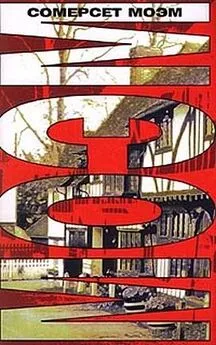
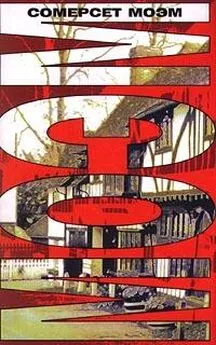
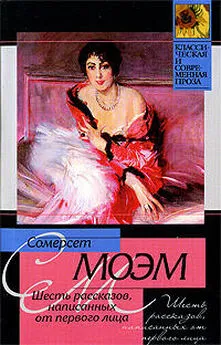
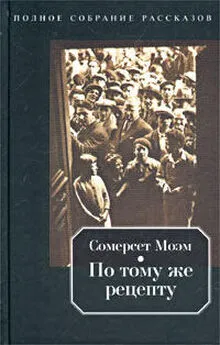
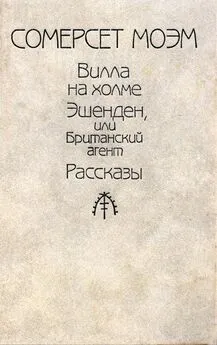
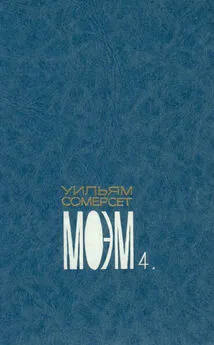
![Уильям Моэм - Сумка с книгами [Рассказы]](/books/1081361/uilyam-moem-sumka-s-knigami-rasskazy.webp)